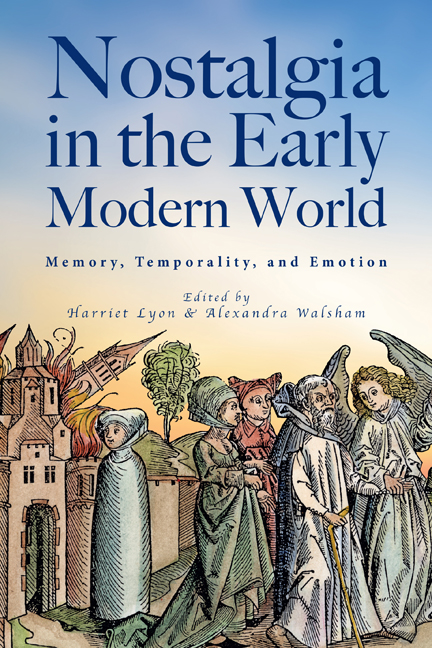3 - Good King Harry? Nostalgia for Henry VIII in Early Modern England
Published online by Cambridge University Press: 11 January 2024
Summary
Describing Henry VIII's coronation celebrations in June 1509, Holinshed's chronicle (1577) captures the air of excitement and possibility that accom¬panied the accession of the new young king, ‘proclaymed by the blaste of a trumpet in the Citie of London … with muche gladnesse and rejoycing of the people’.1 The passages that follow are a twisting, turning tour of a reign that witnessed six marriages, the birth of three future Tudor monarchs, and the schism with Rome that set in motion the English Reformation. As was charac¬teristic of the genre, Holinshed's chronicle was structured around the reigns of successive kings and queens. For its authors, English history was therefore inextricably tied up with the lives and deeds of the country's monarchs. The figure of Henry VIII, man and monarch, thus loomed large in the chroniclers’ account of the early sixteenth century. The portion devoted to his reign opens and closes with an account of his character and stature, tracing how the newly crowned king ‘of youthfull yong yeares’ became a monarch ‘tall and mightie, in his latter dayes somewhat grosse’, although ‘in wit and memorie verie perfect’. This account of the years between the coronation and Henry's death in 1547 was not simply a chronicle ‘of Englande, Scotlande, and Irelande’; it was a chronicle of Henry VIII himself.
This chapter takes as its premise, and point of departure, the notion that particular historical actors can embody the times and places that are the objects of nostalgic longing. Using Henry VIII as a case study, it asks when and why cults of nostalgia arose (or failed to do so), and what we can learn from thinking about nostalgia as a concept constituted by the relationship between time and place and person. Personhood has been a missing dimension in the theoretical literature on nostalgia, which has tended to prioritise the role of the individual as nostalgic thinker or viewer, rather than as the object of nostalgia. However, as ciphers of previous eras, monarchs could personify all that was good – or bad – about the past. Of the early modern English rulers, it is perhaps Elizabeth I who has enjoyed the greatest prominence as an icon of a lost golden age.
- Type
- Chapter
- Information
- Nostalgia in the Early Modern WorldMemory, Temporality, and Emotion, pp. 73 - 89Publisher: Boydell & BrewerPrint publication year: 2023



